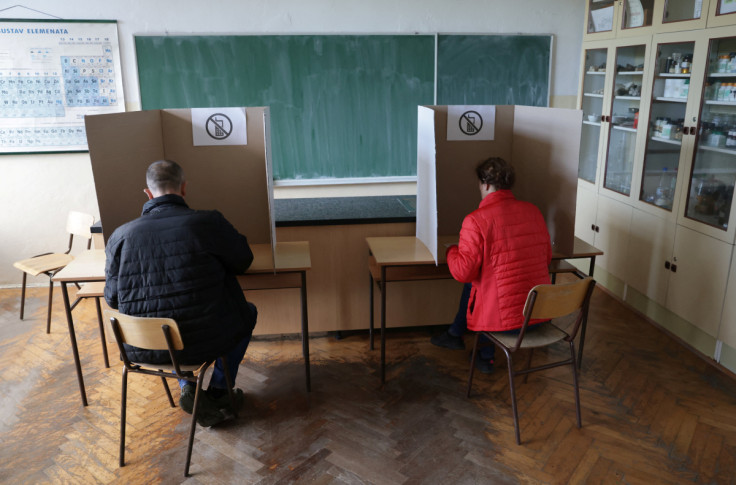Bosnian Splits Remain After Elections But Foreign Policy Tips West

Elections in Bosnia entrenched splits between the fragile country's three ethnic groups at a time of deep political crisis but looked set to tip its foreign policy towards the West rather than Russia, preliminary results showed on Monday.
Nationalist parties from all three groups were expected to dominate the national and regional parliaments, based on 70% of ballots counted, according to partial results of a range of elections held on Sunday issued by the election commission.
Non-nationalist Bosniak and Croat candidates will run Bosnia's inter-ethnic presidency alongside a pro-Russian Serb nationalist's closest ally, the results showed.
Bosnia remains a dysfunctional and unstable state almost three decades since the devastating conflict between its Serbs, Croats and Bosniaks (Bosnian Muslim) as former Socialist Yugoslavia collapsed.
The central, regional and local contests in the country, divided since the war into Bosniak-Croat and Serb autonomous regions with overarching common institutions, pitted entrenched nationalists against candidates seeking to reform the economy.
The parliamentary votes indicated that campaigns of blocking change were likely to continue.
Yet the presence of Bosniak Denis Becirevic and Croat Zeljko Komsic in the presidency is seen as important at a time of crisis in Europe because the body, while mostly ceremonial and symbolic, decides Bosnia's foreign policy and defence.
The two men will have majority against Zeljka Cvijanovic, an ally of Milorad Dodik, who favours ties with Russia and China over those with U.S. and EU.
Becirevic, who represents Bosnia's Muslims, and Komsic, its Catholic Croats, are seen as more likely than their rivals of working to preserve the country's fragile statehood at a time of its worst political crisis since the 1992-5 war.
"It is time for a positive turnaround in Bosnia," Becirovic told reporters after proclaiming victory on Sunday.
BeA Social Democratic Party (SDP) member who was backed by 11 opposition civic-oriented parties, he won 57% of the vote over Bakir Izetbegovic, whose nationalist Bosniak Party of the Democratic Action (SDA) has been in power since the war.
Izetbegovic, who according to the election commission won 37.84% of the votes according to results based on 86.38% of vote, conceded defeat late on Sunday.
Komsic, the leader of the Democratic Front (DF) party, secured his fourth term in the presidency beating a rival from the dominant Croatian Democratic Community (HDZ) with 53.61 of the vote.
Pro-Russian separatist Serb leader Milorad Dodik was on track to continue as president of Bosnia's autonomous Serb Republic. His ally Zeljka Cvijanovic won the race for Serb member of the overall Bosnian presidency with 52.87% of the vote.
PEACE ENVOY STEPS IN
The caucus of Croat political parties dismissed Komsic's victory as illegitimate, saying it was won thanks to mainly Bosniak votes.
Croat political leaders have threatened to block the formation of the Bosniak-Croat Federation government if Komsic wins, but just after polls closed, the international peace envoy in Bosnia amended the election law and regional constitution.
The envoy, German former politician Christian Schmidt, imposed what he said were measures improving the functionality of the Federation and ensuring the post-election establishment of indirectly elected bodies.
The changes relate to the way deputies are elected in the Federation parliament's House of Peoples, scrapping blocking mechanisms and introducing deadlines for the appointment of deputies, as well as boosting local representation.
The election commission said turnout was 50%.
© Copyright Thomson Reuters 2024. All rights reserved.




















